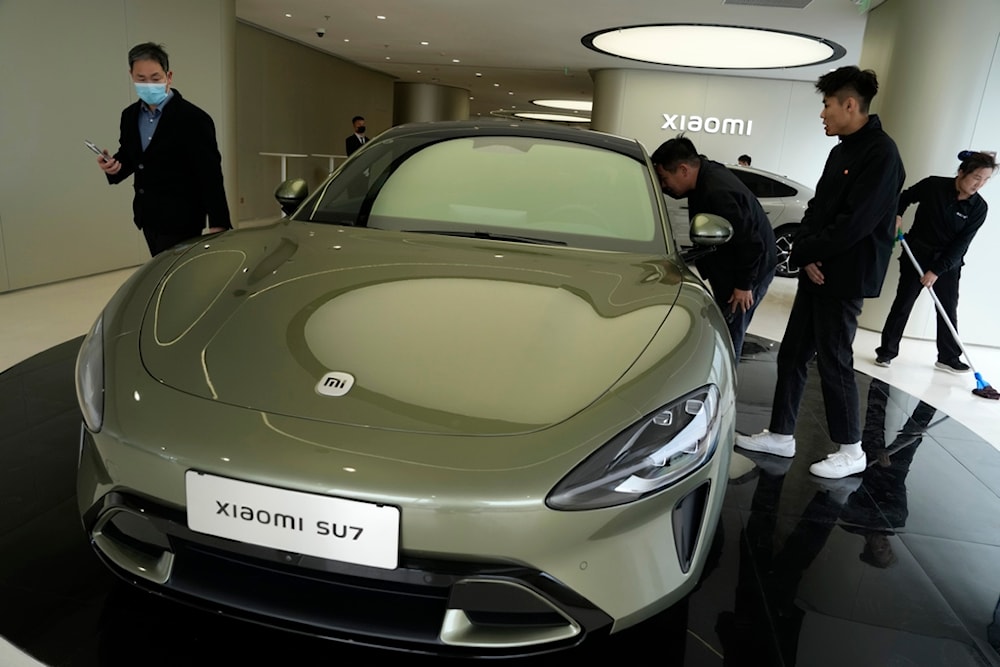European Commission investigates China's dominating EV sector
As Chinese EV sales are forecasted to dominate 15% of the European automobile market, the European Commission launched a probe to protect its automakers.
-

Visitors to the Xiaomi Automobile flagship store looks at the Xiaomi SU7 electric car on display in Beijing, Tuesday, March 26, 2024. (AP)
China's Minister of Commerce is set to travel to Europe in April for discussions regarding the European Commission's inquiry into whether China's electric vehicle sector has received unfair subsidies, informed sources told Reuters.
Minister Wang Wentao's itinerary reportedly includes a visit to France, as confirmed by a source within the French government and two other informants familiar with the trip.
The European Commission has launched a probe to assess the potential imposition of tariffs on exports, aimed at safeguarding European car manufacturers. The investigation is scheduled to conclude by November, with the possibility of provisional duties being imposed earlier at the discretion of the EU executive.
The European Commission has projected that China's electric vehicles sales in Europe could dominate 15% of the market share by 2025, citing price disparities compared to European-manufactured battery-powered cars.
Beijing has refuted allegations that its electric vehicle industry has flourished due to subsidies and has labeled the EU inquiry as "protectionist."
Analysts argue that various factors, including China's control over the battery supply chain, innovation, and fierce competition within its domestic market, have contributed to price reductions.
'Untouchable'
China has dedicated massive resources to developing technologies relevant to the sector since the early 2000s.
Billions of subsidies and incentives gave Chinese automakers a significant headstart against foreign competitors.
"They skipped developing petrol engines because they can't compete with the rest of the world," EV expert Elliot Richards stated back in April.
"So they thought: '(With EVs) we can get a head start in front of everyone else'."
"It's ingrained in the nature of the country's economic system: the Chinese government is very good at focusing resources on the industries it wants to grow," Zeyi Yang wrote in MIT Technology Review.
The Chinese government also built a huge infrastructure to support EVs, including 5.8 million charging ports across the country, and has set public transport contracts for EV firms.
The whole of the United States has fewer public charging docks than Guangdong province alone, which has almost three times as much, according to a Bloomberg report.
"In general, there are still a lot of preferential policies... for the production and sale of electric vehicles," said Li, citing expensive license plate fees in some Chinese cities as an example.
Read more: Saudi Arabia signs $5.6bln deal with Chinese EV firm Human Horizons

 3 Min Read
3 Min Read








